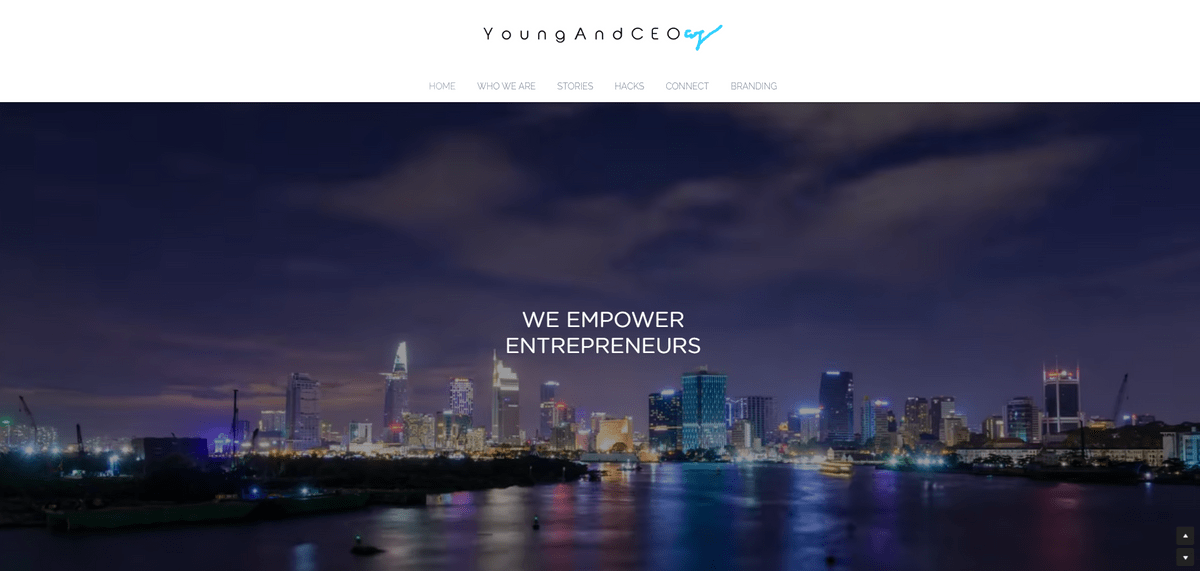Why Website Privacy Policy Is A Must For Your Business Safety
Why Website Privacy Policy Is A Must For Your Business Safety

Having a website privacy policy is crucial for every digital business. A website privacy policy serves as a legal document that outlines how a company collects, uses, and protects user data. It safeguards sensitive information and builds trust with users by demonstrating transparency and accountability.
With increasing cyber threats and data breaches, ensuring online safety has become more critical than ever. A website privacy policy protects user data from unauthorized access or misuse. By clearly stating how personal information is collected, stored, and shared, businesses can establish trust with their users and assure them that their data is safe.
What is Privacy Policy?
A website privacy policy is a legal document that informs users about the types of personal information collected by a website or an app and how that information will be used. It outlines the practices followed by the business to protect user privacy rights. A well-crafted privacy policy helps companies comply with various regulations and demonstrates their commitment to safeguarding user data.
How a Privacy Policy Agreement Protects User Data
Users who visit a website or use an app often share personal information such as names, email addresses, or payment details. A privacy policy agreement sets clear guidelines on how the business will handle and protect this information. By explicitly stating the purpose of data collection and providing details on security measures in place, companies can showcase to their users that they are protecting every sensitive information.
As we delve deeper into understanding the basics of website privacy policy agreement, it becomes evident that they are crucial for online safety and play a significant role in building trust with users.
Understanding the Basics of Website Privacy Policies
Image taken from Playfight
What is Privacy Policy and Its Purpose
A website privacy policy is a legal document that outlines how a website collects, uses, and protects user data. Its purpose is to inform users about the types of information collected, how it will be used, and any third parties with whom it may be shared. The privacy policy agreement is a contract between the website and its users, establishing trust and providing transparency regarding data handling practices. Businesses must have a privacy policy agreement as it helps them comply with privacy laws and regulations, build trust with their audience, and protect user data from unauthorized access or misuse.
Sample Privacy Policy for Reference and Best Practices
When creating a website privacy policy, following best practices to ensure clarity and compliance is essential. Here's an example of a sample privacy policy:
Website Privacy Policy:
1. Information Collection. We may collect personal information such as name, email address, and phone number when you voluntarily provide it through our contact forms or newsletter sign-ups.
2. Use of Information. The collected information will be used solely to communicate with you regarding your inquiries or provide updates on our services.
3. Third-Party Sharing. We do not sell or share your personal information with third parties unless required by law or with your explicit consent.
4. Data Security. We implement industry-standard security measures to protect your personal information from unauthorized access or disclosure.
5. Cookie Usage. Our website uses cookies to enhance user experience and analyze site traffic. You can choose to turn off cookies in your browser settings.
Importance of Transparency and Clear Communication in Privacy Policies
Transparency is vital when it comes to privacy policies. Users need clear communication about how their data will be handled to make informed decisions about whether they want to engage with a website. Businesses can build trust with their audience by clearly explaining what information will be collected, how it will be used, and who it will be shared with. Transparency also helps businesses comply with privacy laws and regulations by ensuring they provide accurate and complete information to users. A well-written privacy policy effectively communicating data handling practices can enhance user trust, improve user experience, and ultimately lead to higher retention rates.
Ensuring User Trust and Data Protection
Image taken from Paul Zheng Portfolio
1. Building Trust Through a Comprehensive Privacy Policy
One of the critical aspects of a website privacy policy is building trust with users. Businesses can establish credibility and transparency by clearly outlining how their personal information will be collected, used, and protected. A comprehensive privacy policy should include details on what data types will be collected, how it will be stored, and who will have access to it. By providing this information upfront, businesses can demonstrate their commitment to protecting user privacy.
2. Safeguarding User Data and Complying with Data Protection Laws
Safeguarding user data is not only essential for maintaining trust but also for complying with data protection laws. Businesses must follow relevant regulations such as the General Data Protection Regulation (GDPR) or the California Consumer Privacy Act (CCPA). These laws require companies to obtain consent from users before collecting their personal information and provide them with options to control how their data is used. By adhering to these laws and implementing robust security measures, businesses can protect user data from unauthorized access or breaches.
3. How Privacy Policy Impacts User Experience and Retention Rates
The presence of a clear and comprehensive privacy policy can significantly impact user experience and retention rates on a website. Users are more likely to trust a website with a transparent privacy policy, knowing that their personal information will be handled responsibly. This sense of security can lead to increased engagement, longer sessions on the site, and higher conversion rates.
Additionally, having a privacy policy that aligns with industry best practices can help businesses differentiate themselves from competitors who may not prioritize user privacy. When users feel confident in the security of their data, they are more likely to return to the website for future interactions or purchases.
The Role of Visual Storytelling in Privacy Policies
Image taken from System2Coffee
Visual storytelling has emerged as a powerful tool to enhance the comprehension of complex concepts such as website privacy policies. By utilizing visual elements such as images, infographics, and videos, businesses can effectively communicate their privacy policies to users more engagingly and memorably.
1. Utilizing Visual Storytelling to Enhance Privacy Policy Comprehension
Visual storytelling involves using compelling visuals to convey information and evoke emotions. When applied to privacy policies, it can help users better understand the terms and conditions surrounding their data protection. By incorporating relevant images and graphics alongside text explanations, businesses can break down complex legal jargon into digestible pieces of information.
For example, instead of presenting a long paragraph on data collection practices, a website could use an infographic to illustrate the collected data types and how they are used. This visual representation makes it easier for users to grasp the key points without feeling overwhelmed by lengthy text.
2. Benefits of Visual Storytelling in Conveying Complex Information
The benefits of using visual storytelling in privacy policies are numerous.
1. Captures attention. Visuals can capture attention and engage users more effectively than plain text alone. They can evoke emotions and connect with users, making them more likely to pay attention to essential details.
2. Helps in memory retention. Secondly, visuals aid in memory retention. Studies have shown that people remember visuals better than text alone. By incorporating relevant images or videos into privacy policies, businesses can increase users' chances of retaining important information about their data protection practices.
3. Makes things simple. Lastly, visual storytelling simplifies complex concepts by breaking them into easily understandable components. This is particularly important when explaining technical aspects such as data encryption or cookie usage. Businesses can use visuals alongside concise explanations to ensure that even non-technical users can comprehend these concepts.
Examples of Effective Visual Storytelling in Privacy Policies
Several businesses have successfully utilized visual storytelling in their privacy policies to enhance comprehension. For instance, Strikingly, a leading website builder and privacy policy generator, incorporates visual elements throughout its privacy policy to make it more user-friendly.
1. Icons and illustrations. One example is using icons and images to represent different data collection purposes. Instead of relying solely on text descriptions, Strikingly uses visuals to convey the purpose of collecting certain types of data, such as email addresses for account verification or payment information for processing transactions. This approach simplifies the understanding of data collection practices for users.
2. Flowcharts and diagrams. Another practical example is using flowcharts or diagrams to illustrate how user data flows within an organization's systems. This representation helps users visualize their data's journey and understand who can access it at each stage. By presenting this information visually, businesses can build trust and transparency with their users.
Overall, visual storytelling in privacy policies offers a unique opportunity for businesses to communicate complex information effectively while engaging users more memorably. By utilizing visuals alongside clear explanations, companies can enhance comprehension, build trust, and ensure user confidence in their data protection practices.
Navigating Legal Requirements for Privacy Policies
Image taken form Nouson
1. Complying with Regional and Industry-specific Regulations
When creating a website privacy policy, it is crucial to consider the regional and industry-specific regulations governing user data collection and use. Different countries have different laws regarding data protection and privacy, such as the General Data Protection Regulation (GDPR) in Europe or the California Consumer Privacy Act (CCPA) in the United States. To ensure compliance, businesses must thoroughly research and understand these regulations to create a privacy policy that aligns with legal requirements.
2. Addressing Sensitive Data, Cookies, and Third-party Sharing
A critical aspect of a website privacy policy addresses sensitive data, cookies, and third-party sharing. Sensitive data refers to personal information that may require additional protection, such as financial or health-related information. Cookies are small files stored on users' devices that track their online activities. It is essential to inform users about the types of cookies used on the website and how they can manage their preferences.
Additionally, if a website shares user data with third parties for advertising or other purposes, this should be clearly stated in the privacy policy. Users have the right to know how their information will be shared and with whom.
3. Consulting Legal Experts to Ensure Compliance
Given the complexity of privacy policy requirements, businesses should consult legal experts specializing in data protection and privacy laws. These professionals can provide valuable guidance on drafting a comprehensive privacy policy that meets all necessary legal standards.
By seeking expert advice, businesses can ensure that their privacy policy covers all relevant areas required by law while addressing specific concerns related to their industry or target audience.
Strikingly: Empowering Businesses with Privacy Policy Solutions
Strikingly is a leading website builder and privacy policy generator that provides businesses with comprehensive solutions for creating and managing their privacy policies. With its user-friendly interface and customizable templates, Strikingly simplifies developing a privacy policy that meets legal requirements and instills trust in users.
Introduction to Strikingly as a Website Builder and Privacy Policy Generator
Strikingly offers businesses an all-in-one platform for building professional websites and ensuring compliance with privacy regulations. As a website builder, it provides intuitive tools and templates that allow companies to create visually appealing websites without coding or design skills. Additionally, Strikingly recognizes the importance of privacy policies in today's digital landscape and offers a dedicated feature for generating these policies.
How Strikingly Simplifies Privacy Policy Creation for Businesses
Strikingly streamlines creating a privacy policy by offering pre-designed templates that can be easily customized to fit specific business needs. Businesses can select the template that best aligns with their industry and preferences, then edit the content to reflect their data collection practices, cookie usage, third-party sharing policies, and more.
Strikingly ensures that businesses cover all necessary aspects while maintaining transparency with their users by providing clear instructions on what information must be included in each privacy policy section. This eliminates the need for extensive research or legal expertise, making it accessible to businesses of all sizes.
Highlighting the Benefits of Using Strikingly for Privacy Policy Management
Using Strikingly for privacy policy management offers numerous benefits to businesses.
1. Designer-made templates. Firstly, it saves time by providing ready-made templates that can be quickly customized instead of starting from scratch. This allows companies to focus on other essential tasks without compromising online safety measures.
2. User-friendly interface. Strikingly's user-friendly interface ensures that even individuals without technical expertise can easily navigate and update their privacy policies as needed. This flexibility is precious in a rapidly evolving digital landscape where privacy regulations may change frequently.
3. Visual storytelling with Strikingly. Strikingly also understands the importance of visual storytelling in conveying complex information effectively. Businesses can enhance user comprehension and engagement by incorporating visual elements such as infographics, charts, and diagrams into privacy policies. Strikingly's platform enables enterprises to seamlessly integrate visual storytelling strategies into their privacy policies, further strengthening their communication efforts.
Strikingly empowers businesses by providing a comprehensive solution for creating and managing privacy policies. Its intuitive interface, customizable templates, and emphasis on visual storytelling make it an invaluable tool for businesses looking to prioritize online safety while maintaining user trust.
Build a Reliable and Secured Website With Strikingly Today!
Image taken from Young & CEO
Prioritizing online safety through a website privacy policy is crucial in today's digital landscape. By implementing a comprehensive privacy policy, businesses can protect user data and build trust with their audience. This ensures compliance with data protection laws and enhances the overall user experience and retention rates.
Harnessing the power of visual storytelling in privacy policy creation is an effective way to engage users and convey complex information. Optical storytelling marketing techniques can make privacy policies more accessible and understandable for users, ultimately improving their comprehension and trust in the brand.
One solution that simplifies privacy policy management is Strikingly, a website builder and privacy policy generator. Strikingly offers businesses an easy-to-use platform to create, customize, and update their privacy policies efficiently. By embracing solutions like Strikingly, companies can streamline their privacy policy management process and ensure compliance with legal requirements.
Prioritizing online safety through a website privacy policy is essential for businesses today. By harnessing the power of visual storytelling in privacy policy creation and embracing solutions like Strikingly for streamlined management, companies can protect user data, build trust with their audience, and ensure compliance with data protection regulations.
Want to start building your online presence? Chat with us today!





